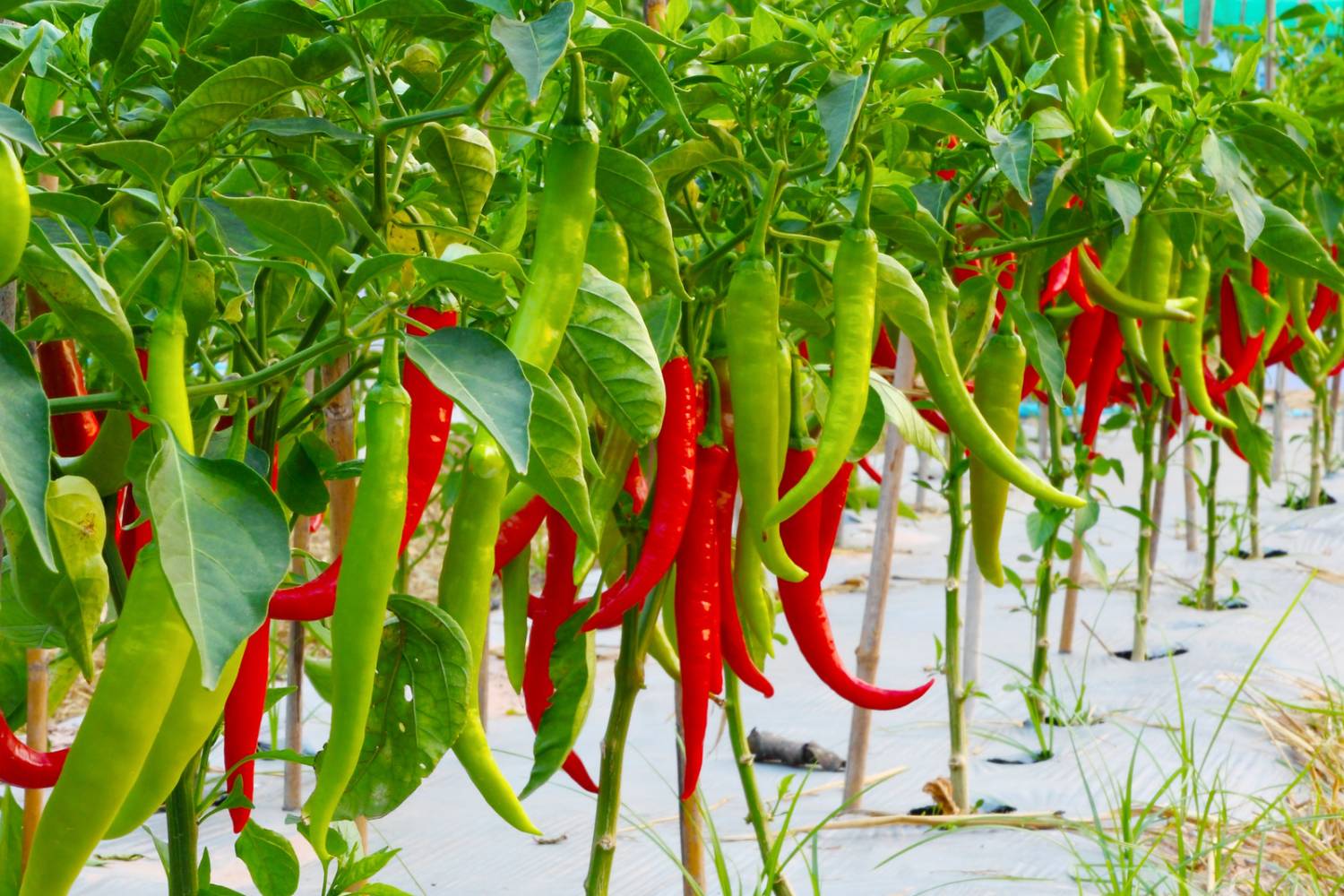Picking the Best Fertilizers for Peppers: Specialist Recommendations
Picking the Best Fertilizers for Peppers: Specialist Recommendations
Blog Article
Organic Vs. Synthetic Fertilizers: Which Is Best for Nurturing Healthy And Balanced Pepper Plants?
In the world of nurturing healthy pepper plants, the option in between artificial and natural fertilizers stands as a critical choice with far-reaching effects. While both options aim to provide vital nutrients to sustain plant growth, the nuances of their influence on the soil, plant health and wellness, and the atmosphere trigger a dispute that mirrors throughout the horticulture area. Comprehending the unique benefits and potential pitfalls of each fertilizer type is important for pepper cultivators looking for to optimize their yields while preserving an eco-conscious and sustainable technique.
Advantages of Organic Fertilizers
Organic fertilizers provide a sustainable and environmentally-friendly method to beneficial pepper plants, offering essential nutrients without making use of synthetic chemicals. These all-natural plant foods are derived from natural resources such as garden compost, manure, bone meal, and algae, advertising dirt health and biodiversity. Unlike synthetic fertilizers, natural choices release nutrients gradually, making certain a stable and balanced supply for pepper plants to prosper.
One substantial advantage of natural fertilizers is their capacity to enhance dirt structure and water retention. By improving soil health, natural fertilizers advertise advantageous microbial task, which helps in nutrient uptake by pepper plants. Furthermore, natural plant foods decrease the threat of chemical run-off, safeguarding water resources from air pollution and guarding the setting.
In addition, organic plant foods add to lasting dirt fertility by promoting the development of beneficial dirt organisms. These microorganisms help damage down organic matter, launching nutrients in a kind that is quickly available to pepper plants. best fertilizers for peppers. By fostering a healthy and balanced dirt community, organic fertilizers support lasting pepper farming techniques that benefit both plants and the environment
Disadvantages of Synthetic Plant Foods
Artificial fertilizers, as opposed to their natural counterparts, position various drawbacks when made use of to nurture pepper plants, influencing both plant health and wellness and ecological sustainability. One significant drawback of synthetic fertilizers is their tendency to seep nutrients from the soil promptly. This fast leaching can lead to nutrition imbalances in the dirt, creating plants to deal with toxicities or shortages. Furthermore, synthetic fertilizers can hurt beneficial dirt microorganisms, such as earthworms and helpful bacteria, interrupting the dirt ecosystem's balance.
Furthermore, the overuse of artificial fertilizers can add to water pollution. Excess plant foods not soaked up by plants can clean away right into water bodies, causing eutrophication, where algae blossoms deplete oxygen levels in the water, damaging aquatic life. Artificial fertilizers are normally acquired from non-renewable resources, such as fossil gas, adding to carbon emissions and ecological destruction during their manufacturing.
Nutrient Absorption Contrast
Effective nutrient absorption plays a critical function in the total wellness and growth of pepper plants. When contrasting natural and synthetic plant foods in regards to nutrient absorption, organic fertilizers have the advantage of giving a much more well balanced and slow-release resource of nutrients (best fertilizers for peppers). Organic plant foods contain a range of macro and trace elements that are not just advantageous for the plants but go right here also advertise healthy and balanced dirt microbial activity, which helps in nutrient uptake. On the other hand, artificial plant foods usually supply a quick release of nutrients, which can cause seeping and drainage, causing lower nutrient absorption prices by the plants.
Furthermore, natural fertilizers boost soil structure and water retention ability, permitting pepper plants to accessibility nutrients a lot more effectively. This enhanced dirt quality helps with root development, making it possible for better nutrient absorption. Artificial plant foods, although initially boosting plant growth due to their high nutrient concentrations, might hinder long-term nutrient absorption by derogatory dirt health and wellness gradually.
Ecological Influence Considerations

On the various other hand, artificial fertilizers, although often even more concentrated and promptly available to plants, can have harmful impacts on the environment if not used effectively (best fertilizers for peppers). Their production requires high energy inputs, bring about greenhouse gas exhausts and adding to environment modification. Moreover, the runoff of excess artificial plant foods can contaminate water sources, resulting in eutrophication and harming water communities.
Best Fertilizer Practices for Peppers
To accomplish this, it recommended you read is important to adhere to ideal plant food techniques tailored to the particular requirements of pepper plants. One important method is to perform a dirt test prior to applying any kind of plant foods.
An additional important technique is to fertilize pepper plants at the correct time. Normally, peppers benefit from obtaining fertilizer at planting and after that once again when they start to blossom. Over-fertilizing can cause nutrition discrepancies and hurt the plants, so it is vital to follow suggested application prices.
In addition, selecting a well balanced plant food with an NPK proportion that matches pepper plants' needs is essential. Inevitably, integrating organic and artificial plant foods sensibly can assist support healthy pepper plants while minimizing ecological impact.
Verdict

Organic fertilizers provide a lasting and environmentally-friendly approach to nourishing pepper plants, providing necessary nutrients without the use of synthetic chemicals. Unlike artificial fertilizers, natural options release nutrients gradually, guaranteeing a stable and well balanced supply for pepper plants to thrive.
Artificial fertilizers, in contrast to their natural counterparts, pose various negative aspects when made use of to nurture pepper plants, influencing both plant wellness and environmental sustainability. When comparing artificial and organic fertilizers in terms of nutrient absorption, organic fertilizers have the advantage of providing a much more balanced and slow-release source of nutrients.Moreover, natural fertilizers improve soil framework and water retention capability, enabling pepper plants to accessibility nutrients much more effectively.
Report this page